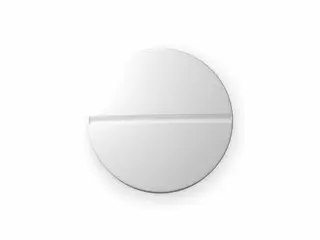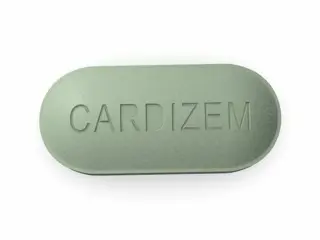Cardiovascular
Discover a wide range of cardiovascular medications designed to support heart health, manage blood pressure, and improve circulation. Shop trusted brands and effective treatments to maintain a healthy heart and enhance your well-being.
The cardiovascular category includes medications used to treat heart-related conditions. These drugs help manage blood pressure, heart rhythm, blood clotting, and other vital heart functions. Some of the most popular medications in this category include Altace, Cardarone, Cardizem, Cartia XT, Cordarone, Coumadin, Lanoxin, Lisinopril, Micardis, Nimotop, Plavix, and Samsca.
Altace is an ACE inhibitor. It helps relax blood vessels. This lowers blood pressure and improves blood flow. Altace is often prescribed for hypertension and heart failure. It can also reduce the risk of strokes and heart attacks. Patients usually take it once daily. Common side effects include cough and dizziness. Altace is effective but requires regular monitoring.
Cardarone and Cordarone are brand names for amiodarone. This drug treats irregular heartbeats, also known as arrhythmias. It works by stabilizing the heart’s rhythm. Amiodarone is often used for serious cases where other medications fail. It can prevent atrial fibrillation and ventricular tachycardia. Side effects can be severe, including lung and liver problems, so careful follow-up is necessary.
Cardizem is a calcium channel blocker. It helps relax the heart and blood vessels. This reduces blood pressure and controls chest pain. Cardizem is suitable for treating hypertension and angina. It can also manage certain types of arrhythmias. Some patients may experience swelling, dizziness, or fatigue during treatment with Cardizem.
Cartia XT is another calcium channel blocker. It is similar to Cardizem but has an extended-release formulation. This allows for once-daily dosing. Cartia XT helps in lowering blood pressure and reducing angina symptoms. It is preferred by some patients for its steady release and fewer side effects.
Coumadin, also known as warfarin, is an anticoagulant. It prevents blood clots. This medication is essential for patients at risk of stroke, deep vein thrombosis, or pulmonary embolism. Coumadin requires regular blood tests to monitor clotting levels. Many foods and drugs interact with Coumadin, so patients must follow guidelines carefully.
Lanoxin contains digoxin. It strengthens the heart’s pumping ability. Lanoxin is used for heart failure and atrial fibrillation. It helps improve symptoms like fatigue and shortness of breath. Dosage must be precise because high levels can cause toxicity. Common side effects include nausea and vision changes.
Lisinopril is another ACE inhibitor. It lowers blood pressure and protects the kidneys. Lisinopril is frequently prescribed for hypertension and heart failure. It reduces the risk of strokes and heart attacks. Side effects may include cough, rash, or increased potassium levels. Kidney function is monitored during treatment.
Micardis contains telmisartan, an angiotensin II receptor blocker (ARB). It manages high blood pressure efficiently. Micardis works by relaxing blood vessels and reducing strain on the heart. It is often prescribed to patients who cannot tolerate ACE inhibitors. Side effects are generally mild but may include dizziness or fatigue.
Nimotop, or nimodipine, is used to protect the brain after subarachnoid hemorrhage, a type of stroke. It helps prevent brain damage by improving blood flow in the brain's vessels. Nimotop requires strict dosing and monitoring. Common side effects include low blood pressure and headache.
Plavix, known as clopidogrel, prevents platelets from clumping together. It reduces the risk of heart attack and stroke in patients with cardiovascular disease. Plavix is often prescribed after stent placement or heart attacks. Side effects include bleeding and bruising. Patients should avoid unnecessary injury while on Plavix.
Samsca contains tolvaptan. It treats low sodium levels related to heart failure. By promoting water excretion without losing sodium, Samsca helps reduce swelling and fluid overload. It requires careful monitoring of sodium levels to avoid complications. Common side effects include increased thirst and dry mouth.
Overall, cardiovascular drugs play a vital role in managing heart health. They improve quality of life and reduce the risk of serious events such as heart attacks and strokes. However, most require adherence to dosing schedules and regular medical checkups. Understanding the purpose and possible side effects of each medication is important for effective treatment. Always consult healthcare providers before making changes to medication.










